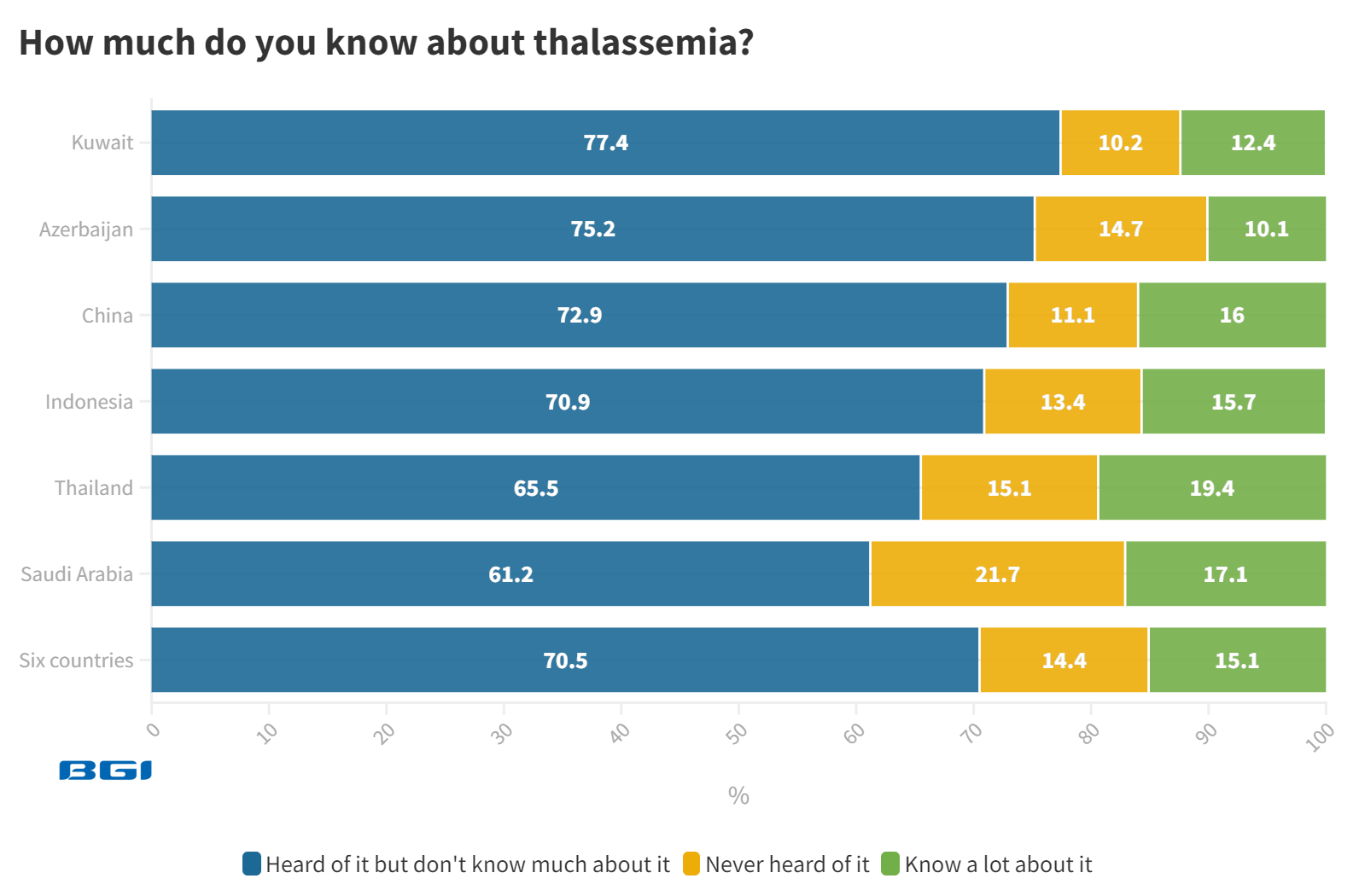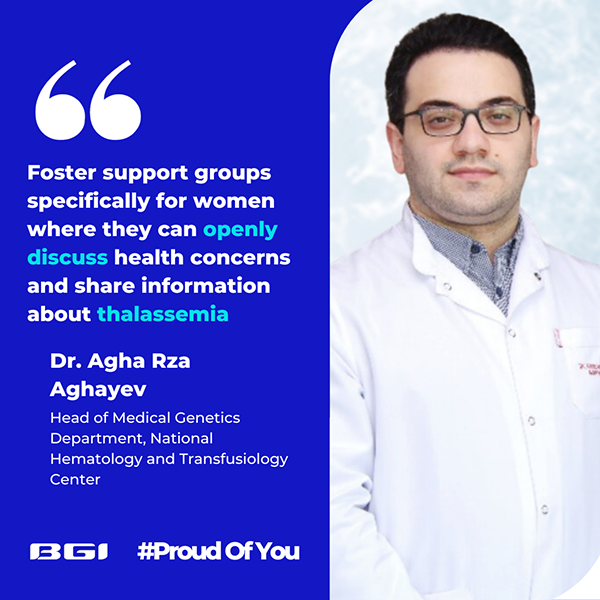75 Percent of Azerbaijani Women Know Little About Thalassemia Health Risks | BGI Insight
2023-12-21
- Dr. Agha Rza Aghayev, Head of Medical Genetics Department, National Hematology and Transfusiology Center, analyzes findings from the Global 2023 State of Thalassemia Awareness Report
The Azerbaijan Thalassemia Center estimates there are more than one million carriers of thalassemia in the country. Treatments for moderate to severe thalassemia is often costly and impose challenges on patients, their families, and the healthcare system. Recognizing these challenges, the Azerbaijan Thalassemia Center and BGI Genomics sealed a Collaboration Agreement in September 2022 to improve thalassemia screening in Azerbaijan through genetic technology.
Dr. Agha Rza Aghayev, Head of Medical Genetics Department, National Hematology and Transfusiology Center, shared his views on BGI Genomics Global 2023 State of Thalassemia Awareness Report's findings related to Azerbaijan and offer greater insight to improve awareness of this disease.
This report shows Azerbaijan has a higher percentage of women (75.2%) relative to global average (70.5%) that know little about thalassemia health risks and treatment. Yet, Azerbaijan's compulsory premarital hemoglobinopathy screening program applies to every couple, resulting in increased female participation in this screening process. Dr. Agha Rza Aghayev noted that: "From my personal perspective, there has been a notable rise in women's awareness regarding the preventability of genetic diseases in recent years."

Compared to the global average, a higher percentage of Azerbaijani women know little about thalassemia.
To further raise thalassemia awareness, he suggests:
Collaboration with Community Leaders: Collaborate with influential community leaders, religious figures, and local authorities to endorse and support thalassemia awareness initiatives. Their endorsement could significantly amplify the reach and impact of awareness campaigns.
Empower Women's Networks: Foster networks or support groups specifically for women where they can openly discuss health concerns and share information about thalassemia, thus creating a supportive environment for learning and understanding.
Azerbaijan has a lower percentage of women (44.6%) relative to global average (50.9%) that say they can persuade their partner to go for genetic counselling and preimplantation genetic diagnosis (PGD) if both are thalassemia carriers.
In Dr. Agha Rza Aghayev's opinion, the barriers to genetic counseling and PGD could include factors such as:
Access to Healthcare: Accessibility to specialized healthcare services, including genetic counseling and PGD, might be limited in certain regions or areas within Azerbaijan. This could be due to geographical barriers or disparities in healthcare infrastructure. Healthcare reforms indicate that these challenges are likely to be overcome in the near future.
Ethical and Religious Factors: Ethical concerns or religious beliefs may influence perceptions towards genetic interventions, leading to reservations or opposition toward these procedures.
Understanding and addressing these barriers through targeted educational campaigns, improving healthcare accessibility, reducing costs, and creating a supportive environment for couples seeking genetic counseling and PGD could help overcome these challenges in Azerbaijan.

Anticipating the ongoing elevation of literacy rates among both genders, coupled with the higher educational attainment of women and their empowered status within society (as enshrined in the Declaration of Independence adopted by the Azerbaijan Democratic Republic on May 28, 1918, marking the nation as the first in the East to grant women the right to vote and hold public office), Dr. Agha Rza Aghayev forecasts a continued upward trend in thalassemia awareness and other genetic diseases.
About BGI Genomics and thalassemia screening tests
BGI Genomics, headquartered in Shenzhen, China, is the world's leading integrated solutions provider of precision medicine. In July 2017, as a subsidiary of BGI Group, BGI Genomics (300676.SZ) was officially listed on the Shenzhen Stock Exchange.
The company has pioneered thalassemia genetic testing services based on next-generation sequencing (NGS) technology since 2013. Expanding the availability of genetic testing has been instrumental in the screening, diagnosing, and treating thalassemia.
Read more:
Medical Sciences Dean - Elevate Trust to Enhance Thalassemia Screening in Thailand
Awareness, Accessibility, and Affordability are Crucial for the Early Detection of Thalassemia
BGI Genomics Global 2023 State of Thalassemia Awareness Report
Southeast Asian Experts Share Thalassemia Research Findings at ICG-18